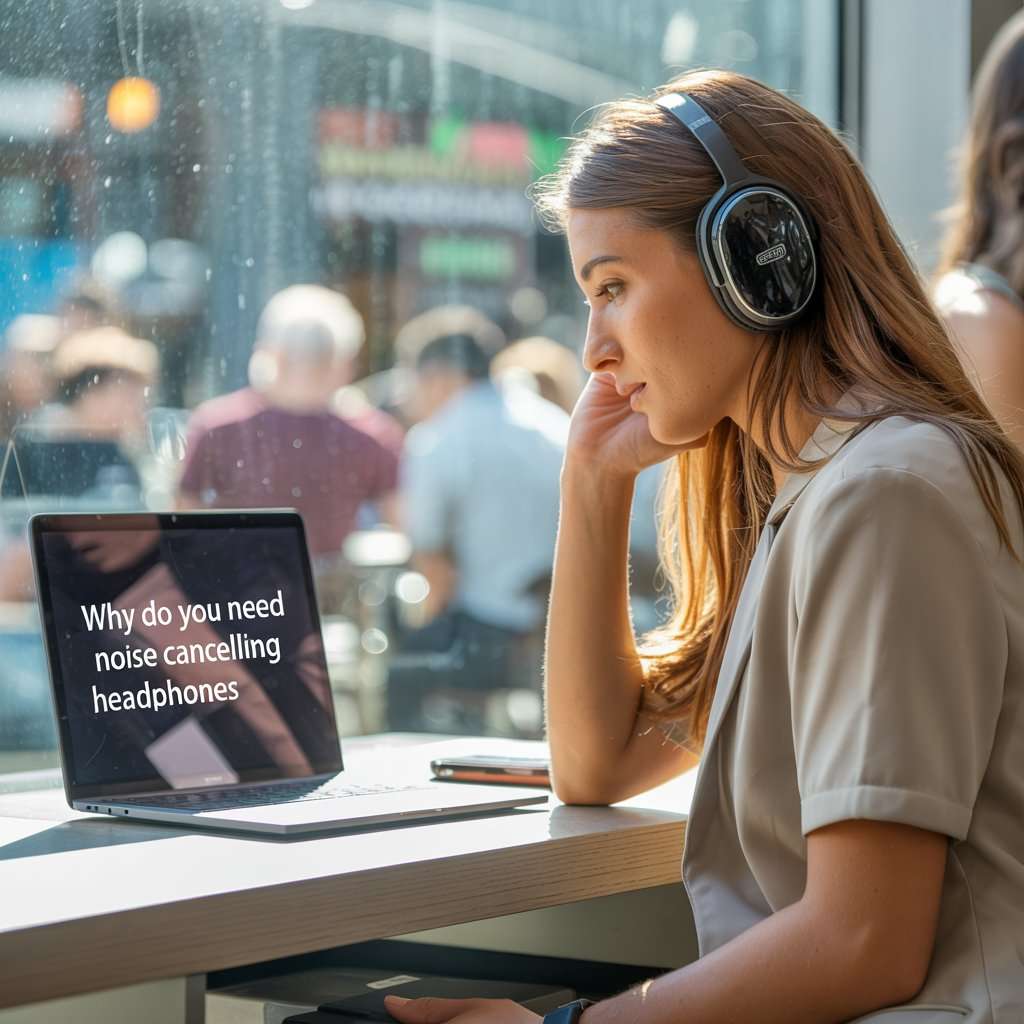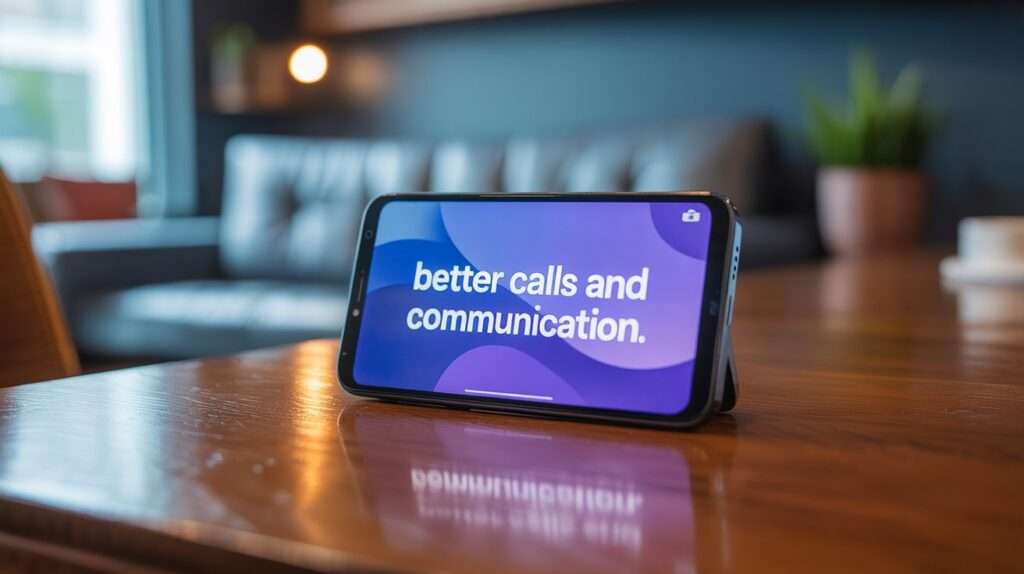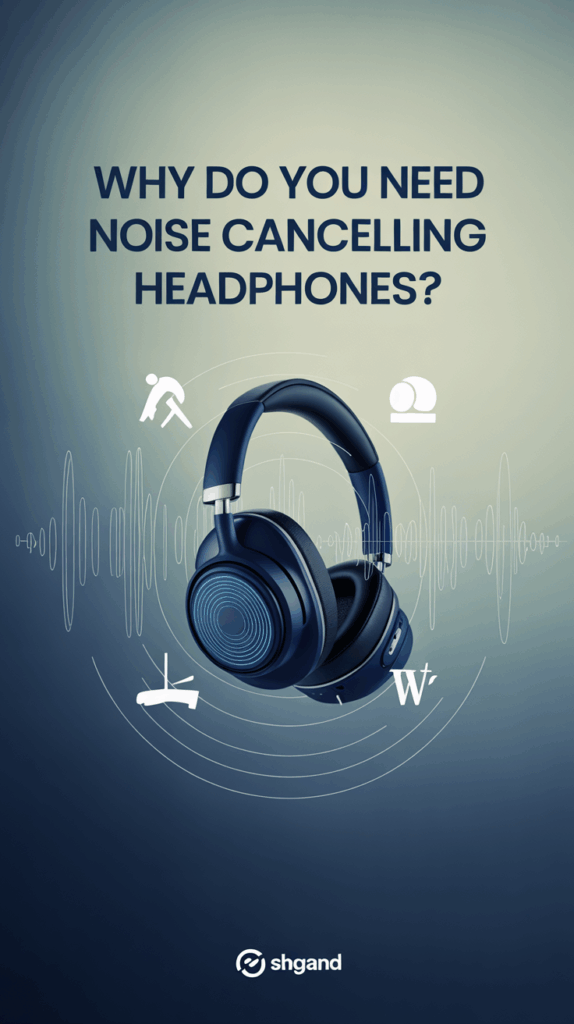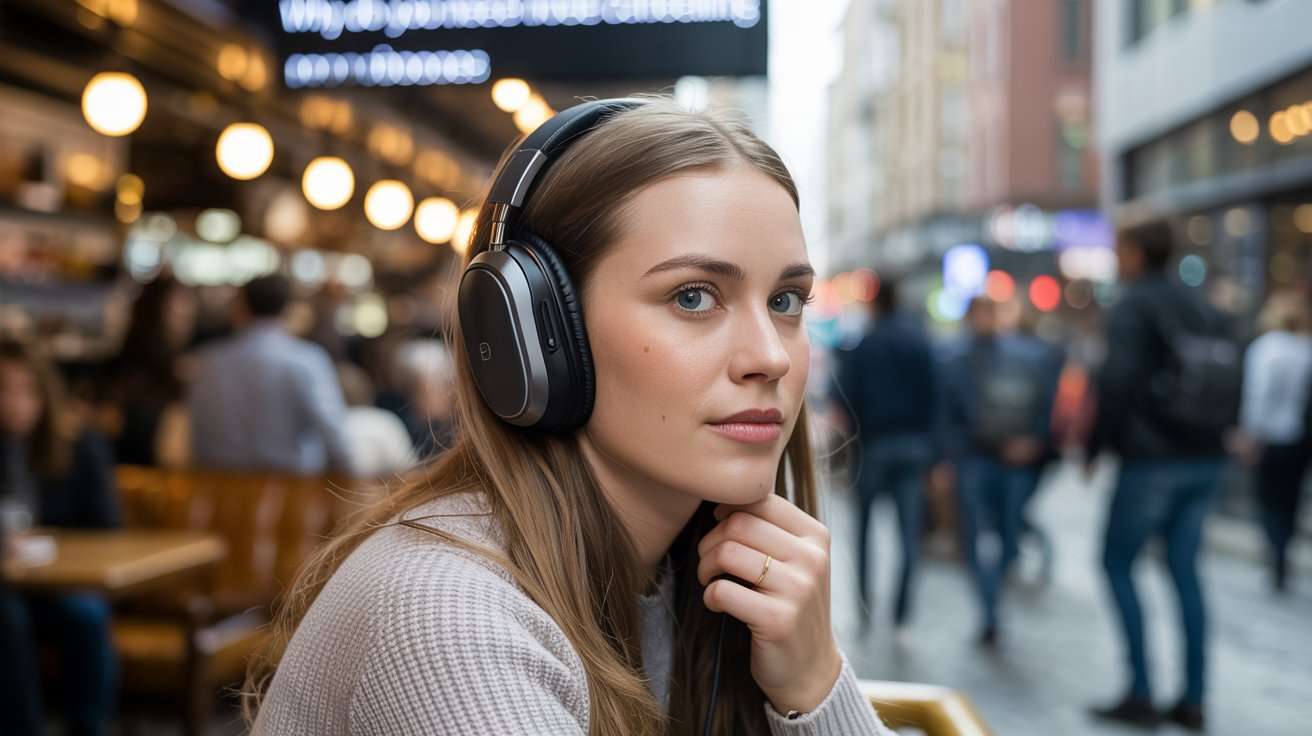In today’s noisy world, noise cancelling headphones have become much more than just a luxury—they are an essential tool for anyone seeking peace, focus, and a better audio experience.
These headphones use advanced technology to reduce or eliminate unwanted ambient noise, helping you enjoy your music, calls, or work without distraction. Here are the main reasons why noise cancelling headphones are worth having.
1. Enhanced Listening Experience

Noise cancelling headphones dramatically improve how you listen to music, podcasts, or videos. By muting distracting background noises, these headphones allow you to hear every detail clearly without cranking up the volume.
This is especially important in noisy environments such as airplanes, crowded cafes, or busy offices. You can enjoy crisp, clear sound with less strain on your ears because you don’t have to fight against external noise to hear.
This undisturbed listening not only enhances sound quality but also protects your hearing by enabling lower volume levels. Lowering volume reduces risks associated with noise-induced hearing loss. Using headphones that cancel noise means you avoid pushing your eardrums to dangerous decibel levels just to hear content over noisy surroundings.
2. Boosted Focus and Productivity
Noise can be a major barrier to concentration, cognitive performance, and productivity. Research shows that even moderate background noise impairs problem-solving and memory tasks. Noise cancelling headphones create a quieter environment that helps block out distractions, allowing you to focus better whether studying, working remotely, or commuting.
Moreover, wearing these headphones signals to others that you need quiet time, further reducing interruptions. This is especially beneficial in shared workspaces or open offices where ambient noise is hard to control. With noise cancelling headphones, you can increase your output and satisfaction by controlling your auditory environment.
3. Peace and Quiet Anywhere, Anytime
Perhaps the biggest advantage is the ability to experience silence and peace in noisy places. Whether you are on a busy train, in a crowded airport, or a noisy street, noise cancelling headphones shut out the chaos, giving you a personal bubble of calm. The technology specifically targets low-frequency sounds like engine hums or air conditioning, making travel and daily commutes much more comfortable.
These headphones are also useful for sensory relief. Those with sensory sensitivities, ADHD, or autism find them helpful to minimize overwhelming environmental noise. This can improve mood, reduce anxiety, and enhance overall well-being by providing control over one’s sensory input.
4. Better Calls and Communication

Noise cancelling technology also benefits calls by reducing ambient noise that interferes with hearing and speech clarity. Whether you take calls in noisy public places or busy offices, noise cancelling headphones ensure clearer, more focused conversations. This makes virtual meetings and phone calls more productive and less frustrating.
5. Hearing Protection and Health
Many people wonder if noise cancelling headphones protect against hearing loss. While they are not a direct hearing protection device, they help by allowing users to lower the volume in noisy environments, reducing exposure to harmful sound levels. Using them responsibly with appropriate volume and listening duration is key to safeguarding ear health.
Additionally, noise cancelling headphones can reduce listening fatigue and stress caused by constant noise exposure, promoting better mental health. However, it’s important to avoid excessively high volume levels or prolonged use without breaks.
Tips for Using Noise Cancelling Headphones Responsibly

- Keep Volume Moderate: Maintain volume levels between 60-75 decibels to protect your hearing. Avoid cranking up the volume to overpower noises.
- Limit Listening Duration: Take regular breaks to give your ears rest, especially during extended listening sessions.
- Be Aware of Surroundings: Use in safe environments, especially when outdoors, to stay alert to important auditory cues like traffic or alarms.
- Follow Manufacturer Guidelines: Adhere to specific instructions and care tips for your particular headset model.
- Combine with Passive Isolation: For best results, choose headphones that also offer good physical noise isolation in addition to active noise cancelling.
- Clean and Maintain Regularly: Keep headphones clean and in good working order to preserve sound quality and noise cancelling performance.
Frequently Asked Questions
Do noise cancelling headphones completely eliminate noise?
They significantly reduce many types of ambient noise, especially low-frequency sounds like engine rumble, but may not block all high-frequency noises like human voices entirely.
Can noise cancelling headphones work without music?
Yes. The active noise cancelling technology can reduce background noise even without audio playback, useful for studying, sleeping, or relaxing.
Are noise cancelling headphones safe for my hearing?
Yes, when used responsibly at appropriate volume levels. They can actually help protect your hearing by reducing the need for high volume in noisy places.
Can noise cancelling headphones help with focus?
Absolutely. By minimizing distractions, they improve concentration and productivity in noisy environments.
Do they work in all environments?
They work best with consistent low-frequency noise but are less effective for sudden or high-pitched sounds. Combining with good passive isolation helps.
Conclusion
Noise cancelling headphones offer a blend of peace, protection, and enhanced audio quality that is invaluable in our noisy world. Whether you’re a frequent traveler, a busy professional, a student, or someone seeking sensory relief, these headphones provide a sanctuary of quiet and focus.
By investing in a quality pair and using them wisely, it’s possible to enjoy richer sound experiences, protect your hearing, and boost productivity. In an increasingly loud environment, noise cancelling headphones are not just a convenience—they are a necessity.

